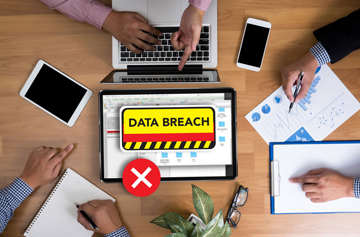
Things Not to Do after a Data Breach
Businesses are greatly dependent on customers for growth and customers provide sensitive data such as credit card details and other personal information depending on the service they avail. A data breach can make them lose their trust in an organization. Data breaches also put customer data at risk and can be destructive for any business. While there are certain steps you need to take after a data breach, and which are much discussed, there are some other steps you should not take after a breach has occurred, says John Suit, chief technology officer at Trivalent. So here are certain do-nots after a data breach.
- Panic and disorganization after a data breach are just as damaging as unpreparedness. It is important that a breached company doesn’t stray from its incident response plan, which should include finding out the alleged cause of the incident as a first step.
- Failure to take notes could be detrimental: Organizations should not forget to take notes. Create a detailed report with disk images and also mention about who, what, where and when the incident occurred. This will help the organization implement new or missing mitigation or data protection measures that may be needed.
- Not bringing in third party expertise: When a company determines a data breach, they should bring in third party expertise to handle and mitigate the fallout. It also includes legal counsel, outside investigators who can conduct a thorough forensic investigation and public relations and communications experts who can create strategy and communicate to the media on the organization’s behalf.
- Retaining the same technology and security plans after the breach: This is something not advisable. The breach occurred because of gaps in those security strategies. Even though those gaps are addressed, you may experience breaches in the future. Ensure that you have new and better technology and security policy in place.
Some Other Data-related Concerns
Every organization has its own data protection policy; but the problem is that many rely on traditional encryption to protect their data. No matter how well it is implemented, it is not equipped to protect data against next generation threats like ransomware and malware. Without file-level data protection that travels with all data to protect it in the event of a breach, organizations will continue to be at risk. Data protection is often considered in the checklist of an organization but nobody thinks about it unless a data breach arises. Having data protection, regular employee training and a good response plan are only the first steps. These plans are only effective if they are constantly updated. Also, organizations should charge their security teams to be up-to-date on data protection technology and next level threats and empower them with the tools and resources to ensure the organization is taking all measures to protect its information. If companies should make data protection their priority, that vigilant approach to information security will flow down through the rest of the organization. If data security is important for an organization, companies should be well prepared to keep their data safe and act swiftly in the event of breach.

As individuals change roles and the organization grows via mergers, acquisitions the data protection plan must be changed. Also, work with your data security or IT team about investing in next generation data protection solutions which is much more than traditional encryption.
Biggest Mistakes Companies Make with Data Security
- Failing to understand the true threat against data related to customers, employees, suppliers and other data.
- Failure to view data security as a 3D ecosystem
- False reliance on cyber products and antivirus
- Failure to classify data and trade secrets
- Failure to have a cutting edge comprehensive Information Security plan
- Lack of proper training for employees and lack of certified vendors, suppliers contractors etc.
Failure of organizations in meeting data security compliance requirements can eventually result in destructive penalties that can impact the business to such an extent where recovery may not be possible. Exercise utmost caution also when partnering with outsourcing firms offering data cleansing services or data entry services.



